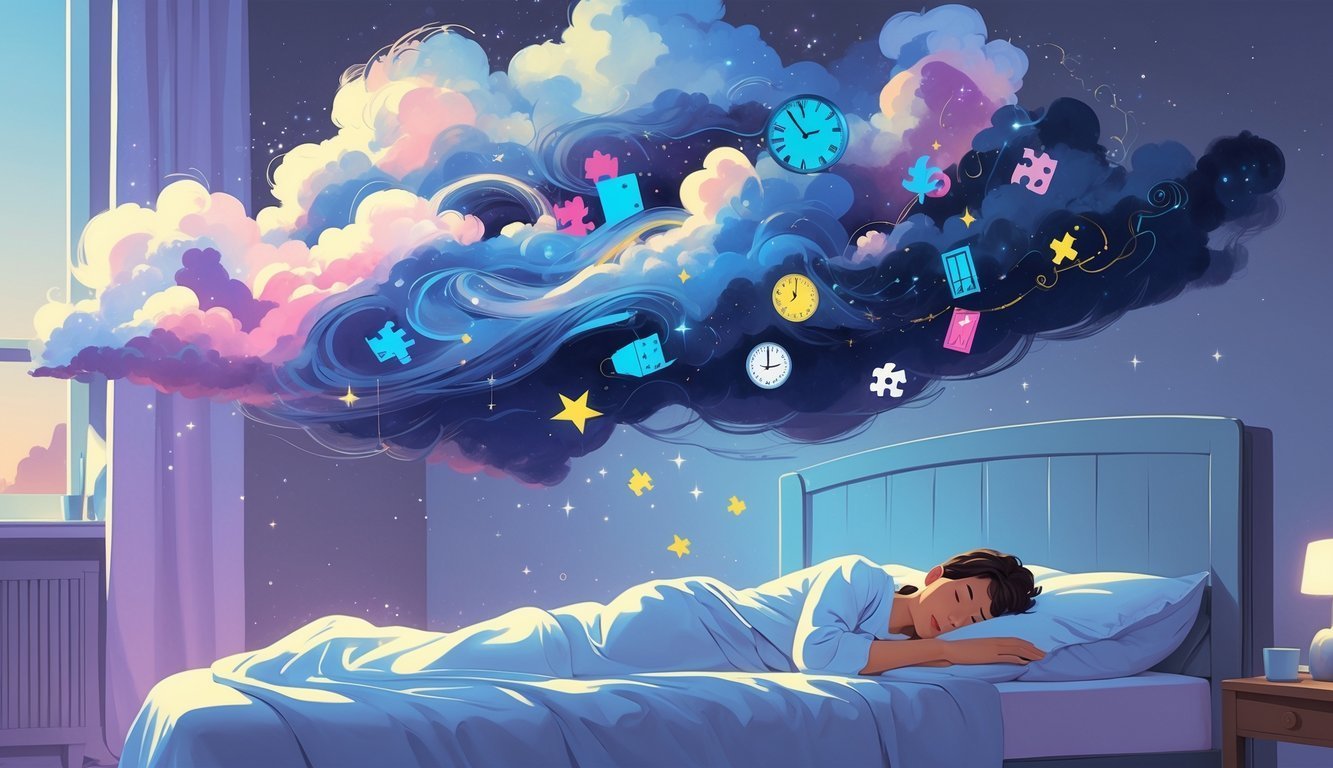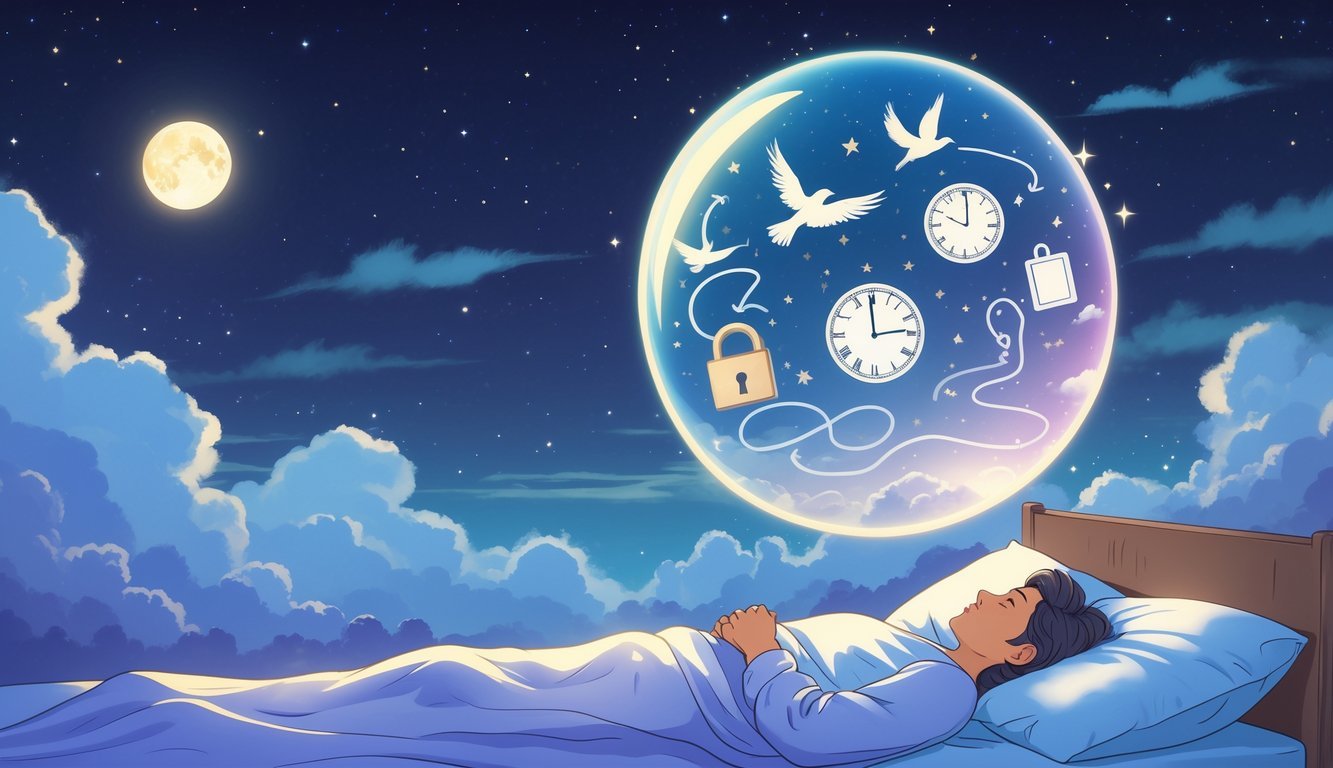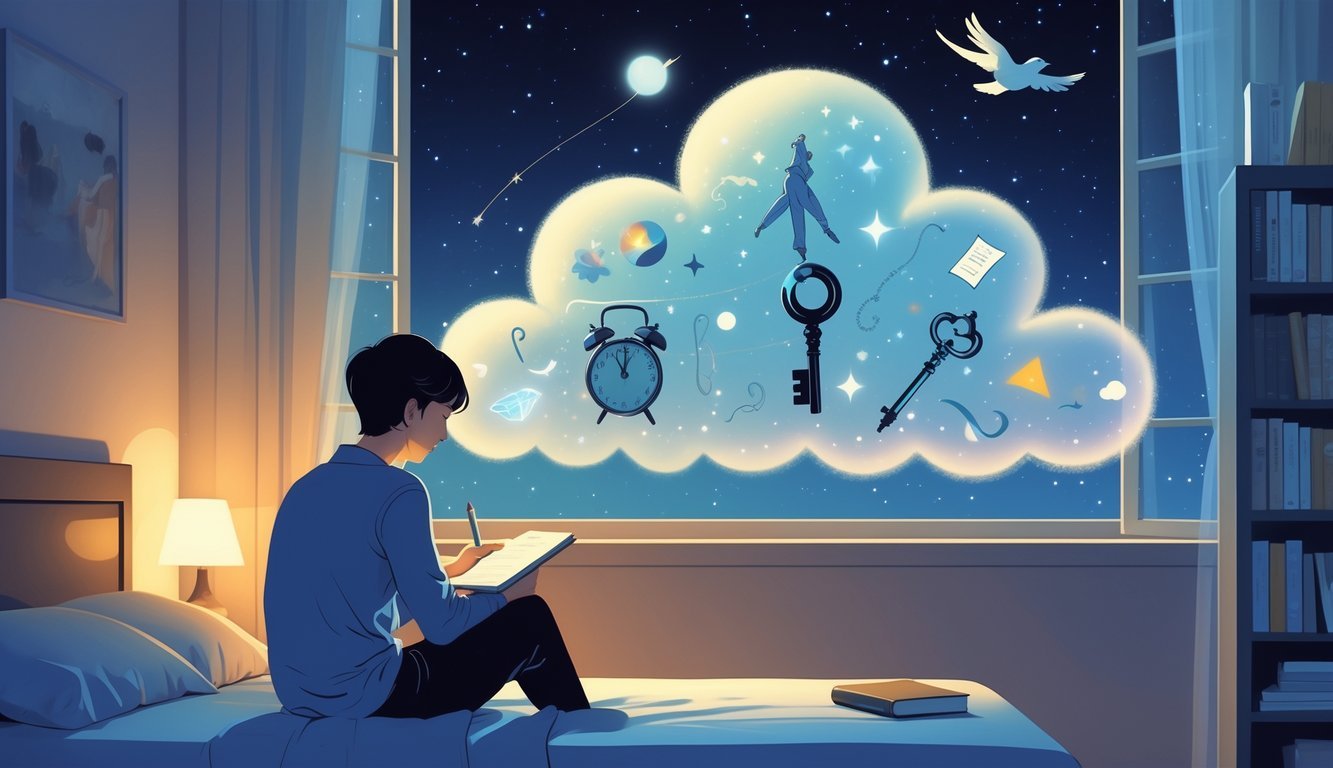PsychNewsDaily Publishers
100 Summit Drive
Burlington, MA, 01803
Telephone: (320) 349-2484
PsychNewsDaily Publishers
100 Summit Drive
Burlington, MA, 01803
Telephone: (320) 349-2484
Dreams reflect emotions, experiences, and thoughts, offering insights into personal psychology and revealing subconscious concerns through symbols that vary in meaning for each individual.

Dreams can feel mysterious and confusing. Sometimes you wake up wondering, “What was that all about?”
Your dreams usually reflect your emotions, experiences, and thoughts. They drop hints about your health, relationships, or even how you’re growing as a person.
If you pay attention to these symbols, you might get closer to your own feelings and figure out what your mind’s trying to tell you.
Since dreams use symbols that mean different things for each person, it’s good to think about your own life as you try to interpret them.
When you spot patterns or feelings that repeat in your dreams, you might find more answers about what’s going on in your waking life.

Dreams often show parts of your mind you don’t notice when you’re awake.
They bring out feelings or thoughts tied to old memories, stress, or maybe even hopes you haven’t said out loud.
If you look at your dreams closely, you might understand your emotions better and see why you act or worry in certain ways.
Your unconscious mind holds thoughts and feelings you don’t always know about.
Dreams act as a window into this hidden part of yourself.
They bring up memories or ideas your conscious mind ignores or pushes away.
When you dream, you might see images or stories connected to things you haven’t fully faced.
These dreams can help you notice what you’re really thinking or feeling.
Sometimes, dreams let you work through stress or old pain by turning it into symbols instead of obvious events.
Try using your dreams for self-reflection.
When you interpret a dream, it can show you clues about your fears, hopes, or problems.
That makes dreams pretty useful for understanding yourself a bit more.
The feelings you have in a dream shape the symbols you see.
If you feel anxious, your dream might show darkness, being lost, or falling.
If you’re happy, maybe you’ll dream about friends or reaching a goal.
Fear, stress, excitement—these emotions turn into images that sometimes don’t make much sense at first.
Your brain turns feelings into strange stories or pictures.
If you pay attention to how you felt in a dream, it’s easier to guess what the symbols mean.
This helps you see what your mind cares about or worries over.
It’s not just about what happened in the dream, but how it made you feel.
Sigmund Freud believed dreams show hidden desires or fears.
He said most dreams come from repressed feelings or wishes you’d rather not face.
Freud thought symbols like water or flying often connect to your emotional or even sexual life.
Carl Jung had a different take.
He thought dreams bring messages from a “collective unconscious” that everyone shares.
Jung believed dreams help you grow by showing you parts of yourself you might ignore.
Both Freud and Jung saw dreams as important for self-understanding.
Their ideas aren’t the same, but mixing both can help you analyze your dreams and maybe learn a bit more about yourself.

Dreams use all kinds of symbols and scenarios to show your feelings, thoughts, or worries.
You might see animals, places, or events like being chased or flying.
If you learn what these symbols might mean, you can start to understand your mind a little better.
Recurring dreams happen when you keep having the same dream over and over.
Usually, this means something important is on your mind—maybe stress or a problem you haven’t solved.
If you keep dreaming about being late or failing a test, it could show you’re anxious about responsibilities.
Nightmares are those dreams that leave you scared or upset.
Falling, being chased, losing teeth—these are common nightmares.
They can stand for fear of losing control, feeling trapped, or just plain worries about yourself.
If you look at what happens in the nightmare, you might figure out what’s really bothering you.
Some symbols pop up in dreams all the time and seem to carry certain meanings.
Here are a few you might recognize:
| Symbol | Possible Meaning |
|---|---|
| Falling | Fear of failure or losing control |
| Flying | Freedom, escape, or new ideas |
| Being chased | Avoiding problems or stress |
| Teeth falling out | Anxiety about appearance or aging |
| Animals | Instincts, emotions, or personality traits |
| Colors | Different feelings (red = anger, blue = calm) |
| Numbers | Important dates, choices, or messages |
Pay attention to the symbol and how you felt during the dream.
Your own life and experiences change what these symbols mean for you.
Lots of dreams show everyday situations that reveal your thoughts or fears.
Here are some common ones:
Dreams about storms like floods or tornadoes can show strong emotions or big changes.
Animals like cats or snakes might reveal hidden feelings or challenges you’re facing.
If you think about what’s happening in your own life, you’ll get closer to the real meaning behind these dreams.

Dreams show parts of your mind you might not fully understand.
They use images and stories to express feelings or worries.
Yes! Dreams can give you clues about your emotions and thoughts.
Sometimes they highlight fears, hopes, or conflicts you didn’t even notice when you were awake.
Think about what the symbols mean to you.
Common images like falling or being chased usually connect to stress or feeling out of control.
Some people feel dreams connect to something bigger or spiritual.
You might find guidance or messages in your dreams if you see them that way.
Repeating dreams often point to unfinished issues or feelings.
Your mind could be nudging you to pay attention to these things.
Different cultures see dreams in their own way.
What’s a warning in one place might be a hopeful sign in another.
Yeah, a lot of people dream about being chased, falling, or even losing loved ones.
Usually, these dreams tie back to stress, fear, or changes happening in your life.